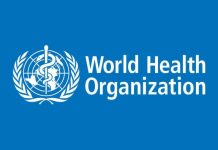ZMapp, a combination of three humanised monoclonal antibodies, has recently dominated the headlines as the only available treatment for the dreaded Ebola Virus Disease (EVD). The drug is one of the arsenals in the medical kit of the United States’ National Institute of Health that also include DNA vaccines and patents of the Ebola virus itself.
Produced under contract by Mapp Laboratories, ZMapp represents a wonderful demonstration of the power of effective partnerships between public research organisations and the private industry. A study of the efforts made by the US government shows a strong degree of long–term cohesive thrust between different organisations that include the National Institute of Health (NIH), Centres for Disease Control and Prevention (CDC), the United States Army Medical Research Institute of Infectious Diseases (USMRIID), the Canadian government and a host of private pharmaceutical firms.
Apparently, each member of the partnering group had been preparing for a time like this and the outbreak was simply an opportunity to evaluate their degree of preparedness. The United States, in particular, had reasons to take Ebola seriously. One is that there are no known cures for EVD, as the rapid onset of symptoms does not allow the host immune system to develop sufficient antibody for boosting immunity. Another more important reason is that the Ebola virus constitutes a potential biological weapon. If this was a war, the United States was ready; Nigeria, on the other hand, could have been wiped out.
We wish to note that it is the same United States Army that made significant contributions in the search for Ebola vaccines and treatments that sponsored some of the massive research efforts undertaken by Prof. Maurice Iwu in 1985. The United States government, also, through the NIH, sponsored a similar project at the National Institute for Pharmaceutical Research and Development (NIPRD) that centred on multi-drug resistant tuberculosis.
No doubt, a host of other Nigerian research grants are sponsored by international governments working in tandem with the local industry and we know that the terms of the intellectual property rights sharing is always in favour of the one paying the bill, being the one seeing the bigger picture. The inference is that great nations are built on strong ideas and structures. It is great institutions, public and private, that comprise these structures. A pivotal responsibility of leadership is to fashion out modalities for the smooth operation of these structures as they seek to address national prerogatives.
It is our belief that the Nigerian health care landscape is wanting in both effective ideas and structures. There is no consistency between our professed long-term objectives and a commitment to the development of the requisite structures.The impasse between the government, medical doctors and other health care professionals is one of the clear indicators that we are yet to even arrive at what constitutes our long-term objectives and how we hope to achieve them.
At the onset of the President Obama administration, his commitment to a national health care agenda and the manner in which it was executed was unmistakable. In the case of Nigeria, however, there is apparently yet to be ownership of the health care agenda. Someone might even argue that there is no agenda yet, at least a compelling one
The Ebola crisis, therefore, is a wake-up call. It tells us that there are consequences, grave consequences for our ineptitude. It reminds us that, without a strong national spirit in our quest for development, we will always be at the mercy of other nations even for things we could have resolved ourselves.
The resounding message we get from the National Institute for Pharmaceutical Research and Development is that Nigeria indeed has the capacity to develop a serum similar to ZMapp and we in no way question the capacity of its leadership. Our worry is that a nation like ours with an already diminished elite human resource base need not lose heroes like Dr Ameyo Adadevoh, before we arise to our capabilities.
Health care is an integrated system; it can only be built on strong ideas and strong institutions by individuals who have a system view and a long-term commitment to noble objectives.










